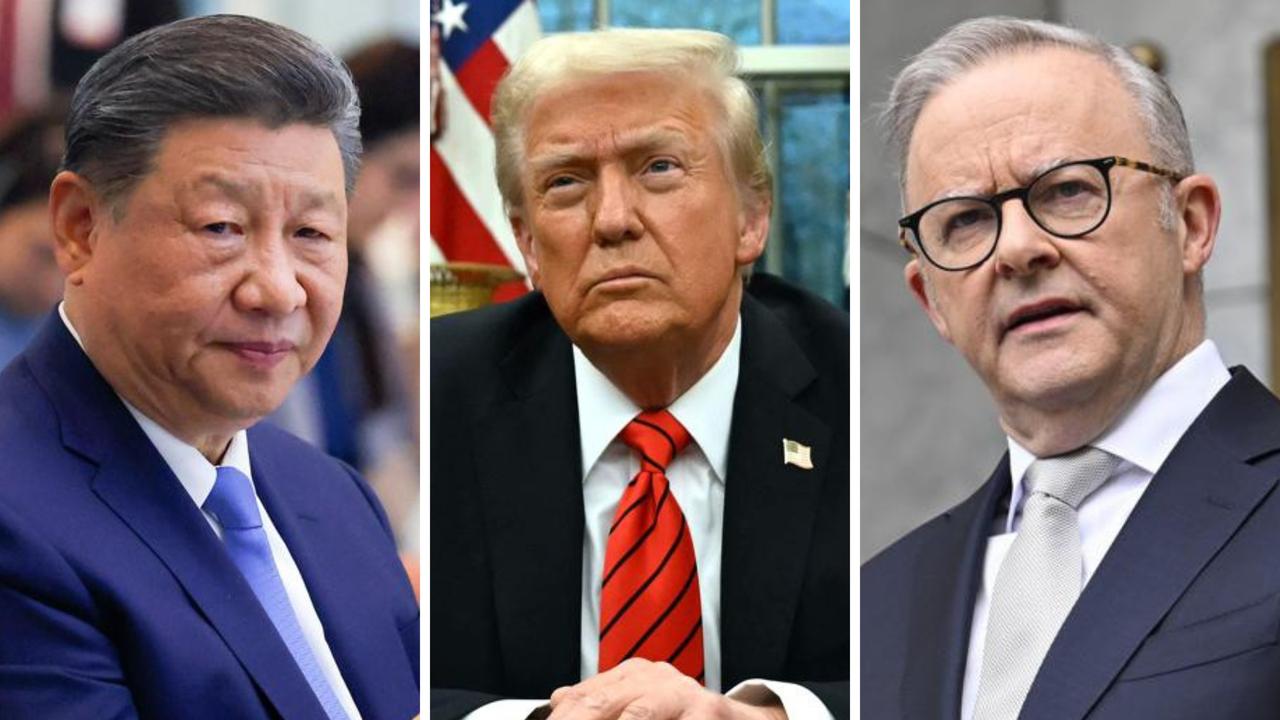Rohingya in Myanmar: The people that nobody wants
THOUSANDS have been loaded onto boats and left stranded in the sea because no one wants to claim them. Why are these people so hated?
THEY have been described as one of the most persecuted minorities in the world, but why are the Rohingya so hated?
The group drew international media attention this month after thousands were left stranded on boats in southeast Asia because no country wanted to claim them.
Last week, a series of graves in at least 17 abandoned jungle camps used by human traffickers were found, with authorities investigating whether they contained the bodies of Rohingya fleeing persecution.
With about 1.3 million Rohingya denied citizenship in Myanmar, these people have no where to go, and no where to call home.
WHO ARE THE ROHINGYA?
The Rohingyas are a Muslim ethnic group, about 1.3 million of whom live in Myanmar. They say they are descendants of Arab traders who have lived in the region for generations. But Myanmar’s government disagrees and says they are essentially economic migrants from neighbouring Bangladesh.
International relations expert Dr Mathew Davies of the Australian National University told news.com.au that the government used this justification to deny the Rohingyas citizenship. While the government has signed ceasefire agreements with other ethnic minority groups it has refused to do this with the Rohingya as they believe the groups shouldn’t be on its territory, has no rights and are complete nonentities in their eyes.
WHY ARE THEY HATED?
Dr Davies said the fact Rohingyas are Muslim in a predominantly Buddhist country was often brought up as a way of explaining tensions, but he said while there were definitely indigenous groups in the region who hated the Rohingyas for religious reasons, a more important factor was the government’s desire for control.
He said that Myanmar’s government was likely exploiting local indigenous groups’ hatred of the Rohingya’s religious views to treat them poorly.
“It’s much more to do with authoritarian state building and centralisation of power ... access to resources, control of borders ... I would make the argument that it is about state building,” Dr Davies said.
While there are reports that extreme Rohingya military groups had links with international terrorist groups, Dr Davies said he had not seen any evidence to convince him this was true.
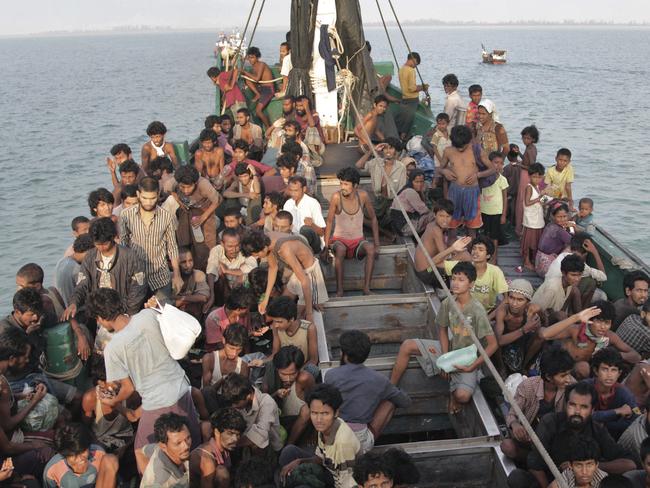
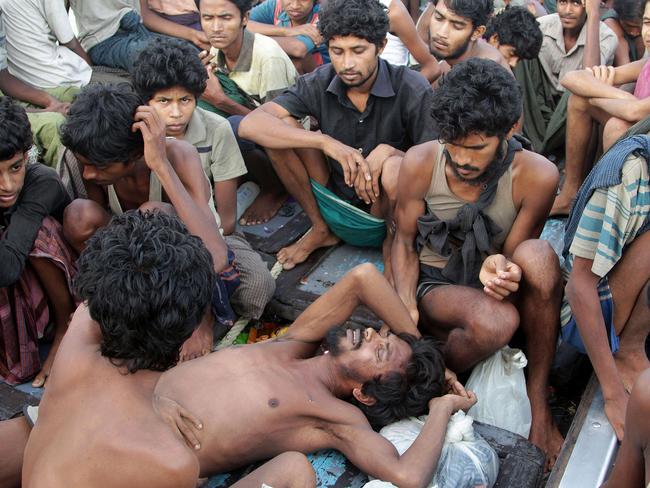
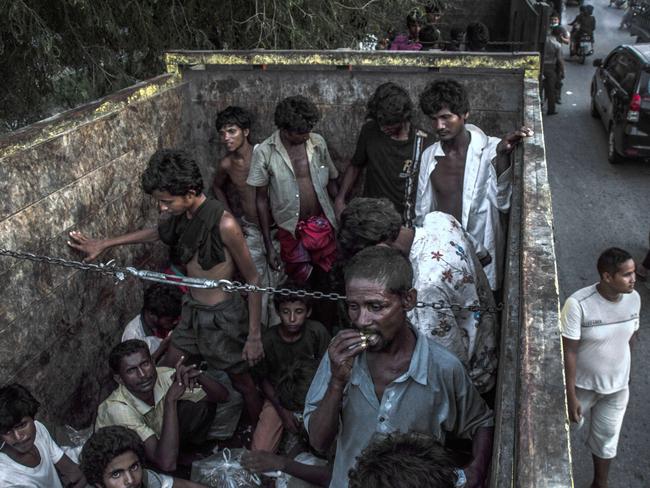
WHY ARE THEY FLEEING MYANMAR?
Repression of Rohingyas has gradually intensified since 2011, when Myanmar took steps to transition from dictatorship to democracy.
Greater freedom of expression gave voice to Buddhist extremists who spewed hatred against them and said Muslims were taking over the country. Attacks that followed left hundreds dead.
Rohingyas were driven from their homes during mob attacks in the western state of Rakhine several times since 2012, when the gang rape of a Buddhist woman fuelled tensions.
More than 140,000 were displaced and are now living under apartheid-like conditions in crowded camps. More than 100,000 more have fled by sea.
Dr Davies said while there were undoubtedly ethnic tensions in the region in recent years, the conflict extended back decades with the government denying Rohingyas jobs and property because they did not consider them citizens.
Myanmar’s government says the Rohingya are illegal migrants from Bangladesh, even though most have lived in Myanmar for generations. Bangladesh also does not recognise them as citizens.
“Because they are not citizens, they don’t have an economic right to jobs, they have been pushed into informal menial labour, they don’t have rights to property, this dates back decades,” he said.
Rohingyas are denied basic services, their movements are severely restricted and some have had their right to vote removed.
More than 120,000 Rohingyas have fled Myanmar on ships in the past three years, according to the UN Refugee agency. Between 40 to 60 per cent of the 25,000 migrants who left Myanmar and Bangladesh in the first quarter of this year were thought to originate from Rakhine.
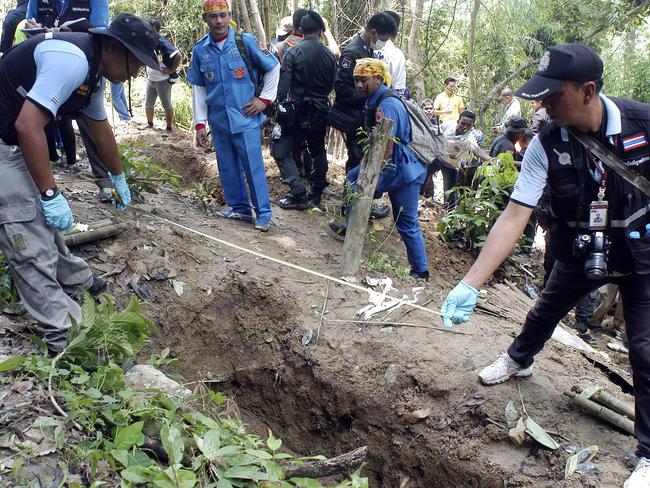
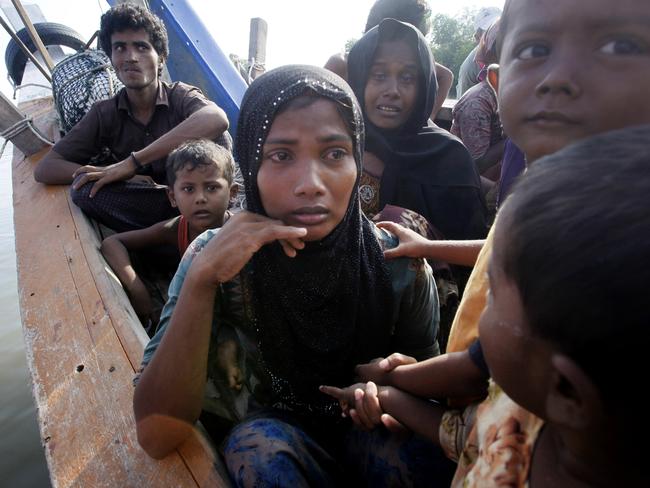
HOW DID THEY END UP ON BOATS?
Rohingyas have been fleeing Myanmar on ships to get to Thailand, then countries such as Malaysia, where they hope to find work or live free from persecution.
But there has been an exodus in recent months, which seems to have been triggered by the greed of people smugglers.
Rohingya brokers, eager to fill boats with human cargo that fetch $100 each, roam villages and displacement camps touting stories of jobs waiting overseas.
Some young people have said they ended up at sea after brokers in Rakhine told them that if they left immediately without telling their parents, they could earn big money in Thailand and Malaysia and send it home to their impoverished families.
But a humanitarian crisis began to unfold after the Thai government decided to crack down on human trafficking in the region, leading to captains abandoning boats to avoid arrest.
Abandoned boats were pushed back to sea like pinballs by the region’s navies.
About 8000 migrants from Myanmar, as well as Bangladeshis escaping poverty, were believed to be stranded at sea by the International Organisation for Migration (IOM).
More than 3600 people have finally been allowed to land ashore in Indonesia, Malaysia and Thailand since May 10.
MASS GRAVES FOUND
The crackdown on people smugglers has also uncovered camps used by human traffickers on the border with Thailand.
Human rights groups and activists say the area on the Thai-Malaysia border has been used for years to smuggle migrants and refugees, including Rohingya Muslims.
In many cases, they pay human smugglers thousands of dollars for passage, but are instead held for weeks or months, while traffickers extort more money from families back home. Rights groups say some have been beaten to death, and The Associated Press has documented other cases in which people have been enslaved on fishing boats.
Malaysian authorities said on Sunday that they had discovered a series of graves in at least 17 abandoned camps used by human traffickers on the border with Thailand where Rohingya have been held.
Malaysian Home Minister Zahid Hamidi told reporters that police were trying to identify and verify “mass graves that were found”.
The finding follows a similar discovery earlier this month by police in Thailand who unearthed dozens of bodies from shallow graves in abandoned camps on the Thai side of the border. The grim discoveries are shedding new light on the hidden network of jungle camps run by traffickers, who have for years held countless desperate people captive while extorting ransoms from their families.
WHAT NOW?
Governments fear that by letting in even a few poor, uneducated migrants, they will open the floodgates for many. But in recent days, Indonesia and Malaysia relented, saying they would provide temporary shelter to 7000 people, the number who have already landed combined with those believed still stranded at sea.
They did so only on condition that the international community would resettle them in third countries within a year. So far, the United States and the tiny African nation of Gambia are the only countries to raise their hands.
Australian Prime Minister Tony Abbott ruled out helping to resettle the Rohingya last week saying, “nope, nope, nope” when asked about the possibility.
“(We) will do absolutely nothing that gives any encouragement to anyone to think that they can get on a boat, that they can work with people-smugglers to start a new life,” Mr Abbott said.
On Monday morning, Foreign Minister Julie Bishop defended Australia’s humanitarian record in the face of criticism about its role in the regional refugee crisis.
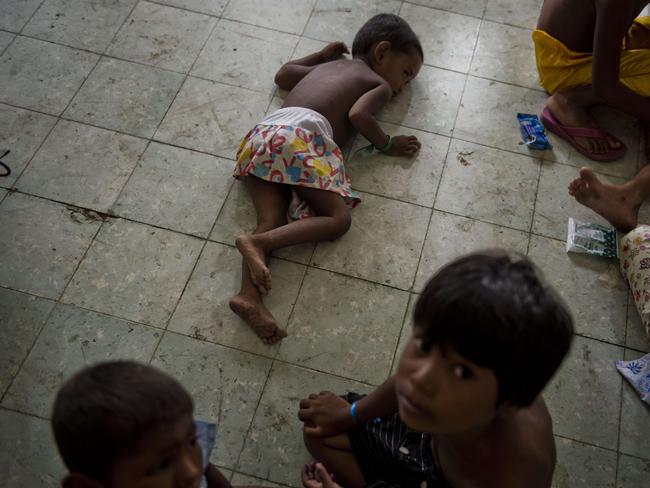
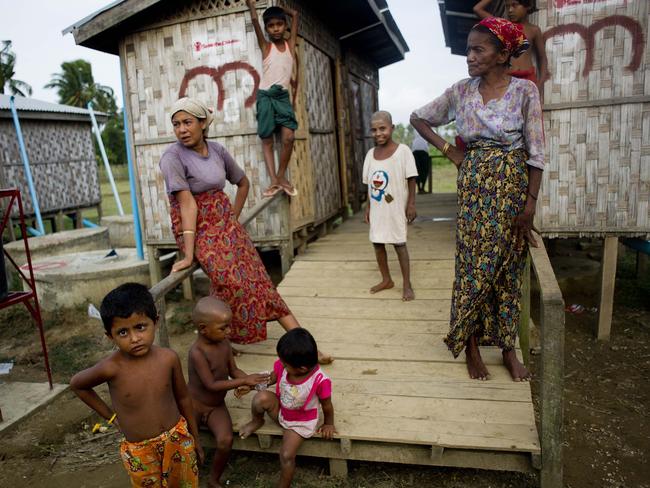
“Australia is doing more than its fair share in trying to find a regional settlement for this issue,” she told ABC radio on Monday. Ms Bishop said she hoped other countries in the region would match one of the most generous refugee and humanitarian resettlement programs in the world.
Hussein Ahmed, a 12-year-old Rohingya boy, told AP he had stopped trying to imagine a future for himself.
“I was born in Myanmar, but they don’t want me. I tried to go to Thailand or Malaysia, but I can’t go anywhere because they don’t want me,” he said at the Langsa camp.
“I was a kid back home, but now I have to be a man. I am in a different country alone. It’s up to God — whatever will happen next.”



